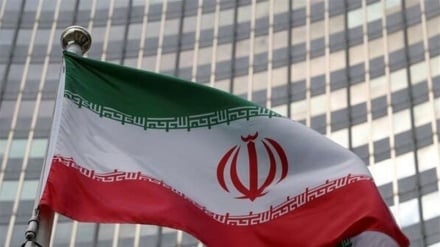Reasons behind prolongation of Bahraini revolution (2)
One of the topics of importance in the Bahraini revolution is the activity of more than thirty movements and parties; which are mainly comprised of Shias. Among these groups, a number of them such as February 14 Revolution Coalition, and February 14 Ulema Coalition demand the immediate downfall of Aale Khalifa regime.
A large number of opposition groups, under the leadership of Al-Wafaq demand political reform and participation of Shias in this country. Meanwhile, some experts opine that severalty of groups and currents can be considered as a threat against the Bahraini revolutionaries, because the possibility exists that Aale Khalifa, upon the guidance of Britain, has raised the opportunity for their foundation and has even played a role in establishment of some of them to somehow divide Shias and the opposition groups.
The severalty of parties and currents has also exhausted the revolutionaries in the long run. Meanwhile, other factors have also contributed to prolongation of the Bahraini revolution.
In Bahrain, there exists the youths’ revolution; and the motto which demands the ouster of Bahraini regime is chanted. However, there are a number of problems, such that in Bahrain, the groups and parties, instead of cooperation with the youths’ revolution, confiscate the revolution. Moreover, some of these groups have changed the motto which demands the ouster of Bahraini regime into demands for the fall of the Bahraini government, which in turn practically leads to double standards.
Meanwhile, a number of Sunni foreigners, coming from Saudi Arabia, Pakistan, and other regions, have settled in Bahrain and have received Bahraini ID Cards from the Bahraini regime in order to impact the demographic makeup of Bahrain. These are affiliated to Bahraini regime and feel no sense of belonging to the people of Bahrain, and can therefore take part in the suppression of Bahraini people.
Promotion of sectarian policies by the Bahraini regime, and formation of a coalition for establishment of a republic by a number of Shia protesters, who urged the downfall of Aale Khalifa regime, led to relative reduction of the large-scale cooperation of Sunnis with Shia leaders.
Also, another development which possibly led to the distrust of Sunni protesters toward the Shia opposition groups was Sunnis’ disbelief in regard to maintenance of their interests by Shias. These fears are also instilled and promoted by local media, which are mainly state-run or supporters of the Bahraini regime.
Additionally, throughout the repressive policies of Aale Khalifa regime, Bahraini Shias have been unjustly imprisoned and interrogated and have been collectively sacked from the governmental sector, to an extent that they are even insulted within checkpoints, in police stations, at the time of detention, and in prison. Up to now, at least a hundred Shia mosques and religious sites have been destructed by security forces. Furthermore, economic-wise, the cooperation between the government and Shia community has been undermined, and currently many Bahraini Shias are looking for jobs, overseas.
In addition to suppression of street protesters, the Bahraini government has also adopted repressive policies toward media outlets, and the information dissemination sector, such that the Bahraini press has not fully covered the wide-scale protests.
Moreover, the Bahraini regime obstructs the entry of the reporters and photographers of different worldwide news agencies, who intend to cover the developments in Bahrain. The reporters who are allowed to cover the developments in Bahrain should have either had fixed correspondents and reporters in Bahrain, or in neighboring countries. Moreover, Aale Khalifa regime filtered and shutdown many websites which presented a live coverage of developments in Bahrain, including the closure of all websites, which were used by Al-Wefaq Group, although many of these websites were licensed by the Bahraini regime to operate. Thus, Reporters Without Borders enlisted the Bahraini regime among the regimes which are against the freedom of press and access to Internet. Additionally, Bahraini regime intensely censors domestic media.
The hostile indifference of the Arab and Western media toward the uprising of people of Bahrain has mounted the problems of the protesters. This conduct of the Arab and Western media has been in stark contrast to their performance toward the popular movements in Tunisia, Egypt, and Libya. For instance, Qatar’s Al-Jazeera Network, as one of the most important Arab networks, has never passed redlines, set by Riyadh in regard to Bahrain, although this network is not under the domination and influence of the Saudi regime, maintaining a biased stand toward the developments in Bahrain.
Absence of a unified look among the opposition groups and parties in Bahrain has in turn undermined the power of the domestic opponents vis-à-vis the political structure. Moreover, the approach of the Bahraini government toward the opposition groups, and negotiations of the Bahraini regime with some of the opposition groups has caused the difference of the goals of opposition parties and groups in regards to revolution. In the face of developments in Bahrain, and especially toward the call of the Bahraini regime to hold talks with opponents, two different approaches have been observed from the opposition groups.
The first approach has been adopted by revolutionary groups such as February 14 Youths Movement, which demand a regime change. They believe that Aale Khalifa regime doesn’t deserve to rule the people of Bahrain and the Bahraini people refuse to hold any negotiations with the Bahraini regime, demanding the ouster of Aale Khalifa. These groups believe that the Aale Khalifa regime has no actual intention of holding talks and is only after ceremonial measures to somehow gain legitimacy. On this basis, these groups believe that the only successful approach is peaceful disobedience against Bahraini regime for its downfall. Meanwhile, the majorities of the leaders of these opposition groups are in jail and cannot take part in talks.
The supporters of the second approach are mainly from Al-Wefaq Group and its Shia and Sunni allies, who in the pre-revolution phase, put emphasis on reforms, and participated in the 2006 and 2010 parliamentary elections, with the same outlook. They believe that the least available means should be used to make the best of participation in the political structure of Bahrain, so that all available means would not be monopolized by the Aale Khalifa regime. Throughout the revolution, Al-Wefaq continued to put emphasis on reforms and negotiations with the Bahraini regime.
Nonetheless, Al-Wefaq Group admitted to the uselessness of these talks after taking part in a few rounds of national negotiations. However, the reformist groups, led by Al-Wefaq, emphasize continuation of talks, in addition to keeping the option of protests and imposition of pressure.
Under these conditions, the disunity of opponents poses a major challenge against the popular uprising of Bahrain, which may lead to disillusionment of protesters and encourage the Bahraini regime to take advantage of Bahrain’s status quo.
The divisions in views of Shia opposition groups over the ouster or resignation of the government and implementation of reforms is one of the challenges posed against opposition currents, which is solely to the benefit of Aale Khalifa regime.
Moreover, the Bahraini regime, upon causing rifts among protesters, has refused to respond to their demands in a bid to somehow handle popular protests. Meanwhile, the people of Bahrain put emphasis on the revolution until the attainment of their goals.
MR/MG


